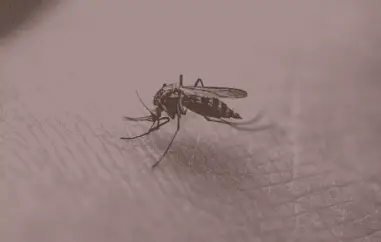First Case of Oropouche Virus Confirmed in Canary Islands
 The Canary Islands have reported their first confirmed case of the Oropouche virus, a mosquito-borne illness that has been spreading in parts of Latin America. The patient, a 49-year-old man residing in Gran Canaria, recently returned from a trip to Cuba. Shortly after his return, he began experiencing symptoms such as diarrhea, nausea, and joint pain, prompting him to seek medical attention.
The Canary Islands have reported their first confirmed case of the Oropouche virus, a mosquito-borne illness that has been spreading in parts of Latin America. The patient, a 49-year-old man residing in Gran Canaria, recently returned from a trip to Cuba. Shortly after his return, he began experiencing symptoms such as diarrhea, nausea, and joint pain, prompting him to seek medical attention.
After initial tests at the Insular University Hospital of Gran Canaria ruled out other tropical diseases like Zika, dengue, and chikungunya, medical professionals suspected the presence of the Oropouche virus. Samples were sent to the National Center for Microbiology in Madrid, where the diagnosis was confirmed, making this the first case in the Canary Islands.
This case is part of a growing trend in Spain, where 14 cases have been confirmed in regions like Galicia, Andalusia, the Basque Country, and Madrid--all linked to recent travel to Cuba. The European Centre for Disease Prevention and Control (ECDC) has also reported 21 cases across Europe, with infections recorded in Spain, Italy, and Germany. All affected individuals had recently visited South America, where the virus is more common.
The Oropouche virus is transmitted primarily through the bite of infected Culicoides paraensis mosquitoes, also known as "jejen." Recent outbreaks have been reported in countries like Brazil, Bolivia, Colombia, Peru, and Cuba. Although the ECDC has assessed the risk of the virus spreading within Europe as low, due to the absence of the primary mosquito vector, there is concern about the rising number of imported cases.
Symptoms of the Oropouche virus typically include sudden fever, headaches, muscle and joint pain, nausea, and vomiting. While the illness usually lasts five to seven days, recovery can take several weeks in some cases. Although the disease is generally not life-threatening, there is currently no vaccine or specific treatment available, with care focusing on symptom relief.
Health authorities in Spain and across Europe are closely monitoring the situation, urging travelers to affected regions to take precautions. The Canary Islands government and national health officials remain vigilant, emphasizing the importance of awareness and preventive measures to limit the risk of further cases as the virus continues to spread in parts of Latin America.









































